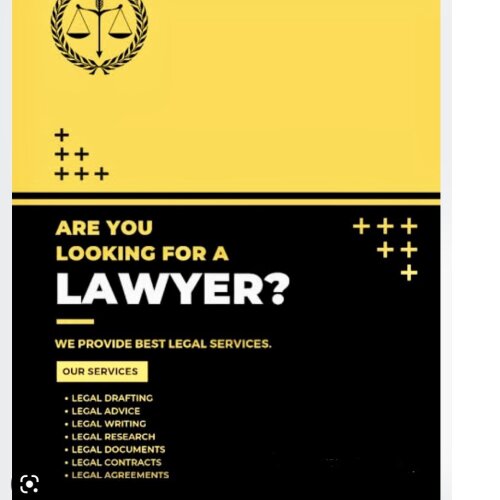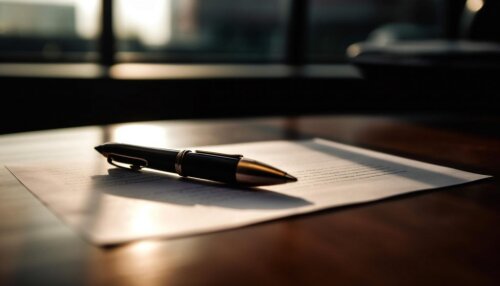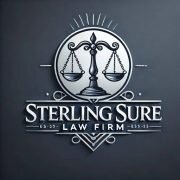Best Premises Liability Lawyers in Nigeria
Share your needs with us, get contacted by law firms.
Free. Takes 2 min.
Or refine your search by selecting a city:
List of the best lawyers in Nigeria
About Premises Liability Law in Nigeria
Premises liability law in Nigeria pertains to the legal responsibility borne by property owners and occupiers regarding injuries or damages that individuals may experience on their property. This legal area focuses predominantly on the need for property owners to maintain their environments safely to prevent accidents, ranging from slip and falls to other on-premises hazards. The liability often depends on the relationship between the property owner and the injured party, such as whether the injured party was a guest, tenant, or trespasser. In Nigeria, premises liability cases can be complex due to varying local laws and regulations, making legal guidance essential.
Why You May Need a Lawyer
There are various situations in which individuals may require legal assistance in the field of premises liability:
- If you have sustained an injury on someone else's property, you may need a lawyer to help determine if you are entitled to compensation.
- If you are a property owner facing litigation due to an accident or injury on your premises, a lawyer can help defend your rights and potentially mitigate liabilities.
- You may require legal advice on compliance with safety regulations to avoid future liability issues.
- In cases involving disputes between landlords and tenants over responsibility for maintenance and repairs that led to an accident.
- When dealing with complex cases involving multiple parties or insurance claims.
Local Laws Overview
Premises liability in Nigeria is primarily governed by principles derived from the common law and the Nigerian judicial precedents. Key aspects include:
- The duty of care owed by property owners, which requires them to maintain reasonably safe conditions.
- Classification of visitors (such as invitees, licensees, and trespassers), which impacts the level of care owed.
- Negligence, which is a crucial factor in premises liability where the owner must have failed to act as a reasonable person would under similar circumstances.
- Contributory negligence, where the victim's own negligence may limit or negate compensation.
- The role of local government bylaws and building codes that must be adhered to.
Frequently Asked Questions
What is premises liability?
Premises liability refers to the legal responsibility of property owners and occupiers to ensure their property is safe for visitors. It covers various types of incidents, such as slips, falls, or injuries due to unsafe conditions.
What duties does a property owner have toward visitors?
Property owners must take reasonable steps to ensure their property is free of hazards. The extent of these duties may vary based on the type of visitor, from invitees to licensees, and even trespassers.
What should I do if I am injured on someone else's property?
Seek medical attention immediately. Document the incident, gather evidence like photographs of the scene, and contact a premises liability lawyer to evaluate your legal options.
How can I prove a premises liability claim?
To establish a premises liability claim, you must show that the property owner knew or should have known about the hazard and failed to address it, leading directly to your injury.
Can a trespasser claim compensation for an injury?
Generally, property owners owe very limited duty of care to trespassers. However, there may be exceptions, especially involving child trespassers, such as in the case of attractive nuisances.
How do local laws affect premises liability claims?
Local laws, building codes, and safety regulations in Nigeria can influence the outcome of premises liability cases by setting standards for property maintenance and safety. Non-compliance can enhance a claimant's case.
What is contributory negligence?
Contributory negligence refers to a situation where the injured party is found to be partly at fault for their injury. This can reduce or eliminate the compensation they receive.
Are landlords liable for injuries on rental properties?
Landlords may be held liable for injuries that arise from dangerous conditions they should have addressed. However, liability can depend on lease agreements and the specifics of the case.
How long do I have to file a premises liability lawsuit?
The statute of limitations for premises liability cases varies, so it's crucial to seek legal advice promptly to ensure you file within the allowed time frame.
What kind of compensation can be claimed in a premises liability case?
Compensation may cover medical expenses, lost wages, pain and suffering, and other damages related to the injury. The specific amounts depend on the case details.
Additional Resources
For more information on premises liability, you can explore the following resources:
- Nigerian Bar Association: Provides legal resources and a directory of qualified premises liability lawyers.
- Federal Ministry of Justice: Offers important updates on relevant laws and regulations.
- Nigerian Institute of Building: For understanding building codes and property safety standards.
- Local Government Offices: To gain insights on property maintenance bylaws specific to your area.
Next Steps
If you require legal assistance in premises liability:
- Contact a qualified premises liability attorney experienced in Nigerian law to discuss your case.
- Gather all documents, evidence, and information related to the incident, including medical records and photographs.
- Prepare any questions or concerns you may have regarding your legal options and potential outcomes.
- Act promptly to comply with any statutory deadlines for filing claims or lawsuits.
Lawzana helps you find the best lawyers and law firms in Nigeria through a curated and pre-screened list of qualified legal professionals. Our platform offers rankings and detailed profiles of attorneys and law firms, allowing you to compare based on practice areas, including Premises Liability, experience, and client feedback.
Each profile includes a description of the firm's areas of practice, client reviews, team members and partners, year of establishment, spoken languages, office locations, contact information, social media presence, and any published articles or resources. Most firms on our platform speak English and are experienced in both local and international legal matters.
Get a quote from top-rated law firms in Nigeria — quickly, securely, and without unnecessary hassle.
Disclaimer:
The information provided on this page is for general informational purposes only and does not constitute legal advice. While we strive to ensure the accuracy and relevance of the content, legal information may change over time, and interpretations of the law can vary. You should always consult with a qualified legal professional for advice specific to your situation.
We disclaim all liability for actions taken or not taken based on the content of this page. If you believe any information is incorrect or outdated, please contact us, and we will review and update it where appropriate.
Browse premises liability law firms by city in Nigeria
Refine your search by selecting a city.













